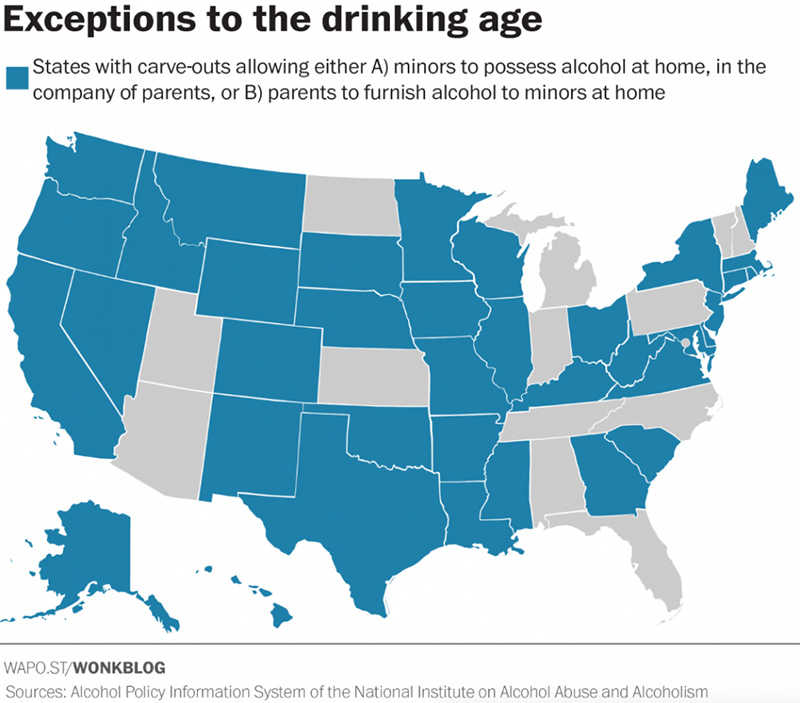It’s common knowledge that in America people under the age of 21 can’t drink alcohol, in fact, out of all the countries in the world that have a minimum legal drinking age, America is the only first-world country to set the age as high as 21. Well, that is besides Oman, which is a first world country but restricts alcohol for religious reasons, as do most Muslim countries.
Thus, America setting the age to drink at 21 is an anomaly and consistently perplexes many. It also leads to the law being broken on a daily basis by underage kids, whether it is simply the act of consuming alcohol at a party, or purchasing alcohol with the use of a fake-ID. And not being able to legally drink prior to leaving a parent or guardians house also prevents teenagers from learning how to drink properly from their caretakers while they live at home, i.e. knowing when to stop drinking, knowing when it is appropriate to drink, knowing the effects of drinking, etc.
However, for Americans who are frustrated with this law – and let’s face it, who isn’t? – it turns out there are loopholes in at least 45 states (the five states not included are Alabama, Arkansas, Idaho, New Hampshire, and West Virginia). These loopholes allow underage civilians to drink in their homes and when accompanied by of-age family members. Though these loopholes are quite simple on the surface, they’re actually a bit more complex when analyzed further. This is because they vary depending on the given state. Some states care about consumption and others about possession. And some states just care about the parents’ agency in distributing alcohol to their kids. It’s not a rigid system of enforcement.
For example, in New York the underage drinking law, accessible on www.nysenate.gov, claims, “A person under the age of twenty-one years may possess any alcoholic beverage with intent to consume if the alcoholic beverage is given to a person by his or her teacher, parent or guardian.” How many students have taken advantage of this law on class trips…?
In Hawaii, South Dakota, and Tennessee it’s legal for an underage person to consume alcohol only for religious purposes. In Arizona, North Dakota, and Utah it’s legal only for religious and medical purposes.
In Arkansas there are no explicit exceptions for underage drinking in the law, but law enforcement often uses their discretion to make exceptions for parents who provide their own children with alcohol.

Underage drinking laws seem to be just as confusing as the presidential election’s delegate process. They both vary from state to state and underscore the lack of their respective system’s rigidity. Additionally, the confusion behind underage drinking laws is heightened when they are inaccurately represented by a given state. In New York it’s common to find government pamphlets, such as this one from the State Liquor Authority, that claim underage drinking to be completely illegal, which we now know, it is not.
The confusion behind underage drinking laws in America accurately reflects the anomalistic nature of America’s minimum legal drinking age. Alcohol is both celebrated and condemned in American culture, demonstrating that the country doesn’t have a firm stance on how to deal with alcohol.
![The States Where Teenagers Can Actually Legally Drink [MAP] The States Where Teenagers Can Actually Legally Drink [MAP]](https://vinepair.com/wp-content/uploads/2016/05/legal-card-375x450.jpg)